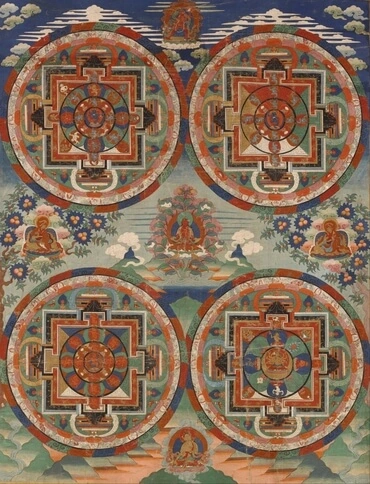1
OR avvenne al tempo di Amrafel re di Sinear, d’Arioc re di Ellasar, di Chedor-laomer re di Elam, e di Tideal re de’ Goi,
2
ch’essi fecero guerra contro a Bera re di Sodoma, e contro a Birsa re di Gomorra, e contro a Sineab re di Adma, e contro a Semeeber re di Seboim, e contro al re di Bela, ch’è Soar.
3
Tutti costoro, fatta lega insieme, si adunarono nella Valle di Siddim, ch’è il mar salato.
4
Essi erano stati soggetti a Chedor-laomer, lo spazio di dodici anni, ed al decimoterzo si erano ribellati.
5
E nell’anno decimoquarto, Chedor-laomer e i re ch’erano con lui erano venuti, ed aveano percossi i Rafei in Asterot-carnaim, e gli Zuzei in Ham, e gli Emei nella pianura di Chiriataim,
6
e gli Horei nelle lor montagne di Seir, fino alla pianura di Paran, ch’è presso al deserto.
7
Poi, rivoltisi, erano venuti in Enmispat, ch’è Cades; ed aveano percosso tutto il territorio degli Amalechiti, ed anche gli Amorrei che dimoravano in Hasason-tamar.
8
E il re di Sodoma, e il re di Gomorra, e il re di Adma, e il re di Seboim, e il re di Bela, ch’è Soar, uscirono, ed ordinarono la battaglia nella Valle di Siddim, contro a questi:
9
contro a Chedor-laomer re di Elam, e Tideal re de’ Goi, ed Amrafel re di Sinear, ed Arioc re di Ellasar; quattro re contro a cinque.
10
Or la valle di Siddim era piena di pozzi di bitume; e i re di Sodoma e di Gomorra si misero in fuga, e cascarono dentro que’ pozzi; e coloro che scamparono fuggirono verso il monte.
11
E quei re presero tutte le ricchezze di Sodoma e di Gomorra, e tutta la lor vittuaglia; poi se ne andarono.
12
Presero ancora Lot figliuol del fratello di Abramo, il quale abitava in Sodoma, e la roba di esso; poi se ne andarono.
13
Ed alcuno ch’era scampato venne e rapportò la cosa ad Abramo Ebreo, il qual dimorava nelle pianure di Mamre Amorreo, fratello di Escol, e fratello di Aner, i quali erano collegati con Abramo.
14
Ed Abramo, com’ebbe inteso che il suo fratello era menato prigione, armò trecendiciotto de’ suoi allievi nati in casa sua, e perseguì coloro fino in Dan.
15
Ed egli, co’ suoi servitori, li assalì di notte da diverse bande, e li sconfisse, e li perseguì fino in Hoba, ch’è dal lato sinistro di Damasco.
16
E ricoverò tutta la roba; riscosse ancora Lot suo fratello, e la sua roba, ed anche le donne, e il popolo.
17
E di poi, come egli se ne ritornava dalla sconfitta di Chedor-laomer e de’ re ch’erano con lui, il re di Sodoma gli uscì incontro nella Valle della pianura, ch’è la Valle del re.
18
E Melchisedec, re di Salem, arrecò pane e vino; or egli era sacerdote dell’Iddio altissimo.
19
E lo benedisse, dicendo: Benedetto sia Abramo, appo l’Iddio altissimo, possessor del cielo e della terra.
20
E benedetto sia l’altissimo Iddio, che ti ha dati i tuoi nemici nelle mani. Ed Abramo gli diede la decima di ogni cosa.
21
E il re di Sodoma disse ad Abramo: Dammi le persone, e prendi per te la roba.
22
Ma Abramo rispose al re di Sodoma: Io ho alzata la mano al Signore Iddio altissimo, possessor del cielo e della terra;
23
se, di tutto ciò ch’è tuo, io prendo pure un filo, od una correggia di scarpa; che talora tu non dica: Io ho arricchito Abramo;
24
salvo sol quello che questi fanti hanno mangiato, e la parte degli uomini che sono andati meco, cioè: Aner, Escol e Mamre; essi prenderanno la lor parte.







